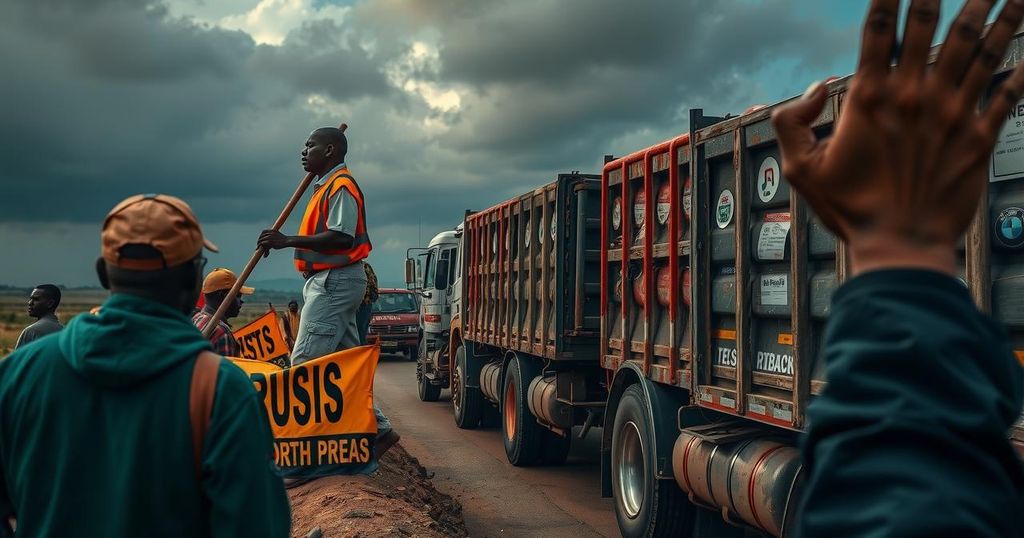Truck drivers in East Africa have ceased operations at the Nimule border in protest of a $70 tax on goods headed for South Sudan. Civil society groups in Sudan are discussing strategies for achieving peace. Additionally, there is a noticeable decline in civic space across Sub-Saharan Africa, highlighting ongoing challenges for governance.
Truck drivers from various East African nations have opted to cease operations at the Nimule border point, protesting against a newly imposed tax of $70 on trucks that transport goods destined for South Sudan. This sudden financial burden has prompted significant unrest among the transport operators, as they seek to advocate for their commercial interests and safeguard their livelihoods. Meanwhile, in a parallel development, a coalition of Sudanese civil society groups is actively engaging in dialogue regarding strategies to quell the ongoing violence in Sudan and foster a conducive atmosphere for lasting peace throughout the nation. Another concerning trend is the ongoing constriction of civic space in Sub-Saharan Africa, further complicating the operations of civil society and the dissemination of vital information.
The Nimule border point has historically served as a crucial artery for trade between South Sudan and its East African neighbors. The recent imposition of the $70 tax by the South Sudanese authorities has raised significant concerns among truck operators, who fear that such financial pressures could adversely impact trade volumes and their operational sustainability. In addition to the transport sector’s unrest, the social and political climate in Sudan remains volatile, with various civil society entities striving to address the conflicts that plague the region. The narrowing of civic space across Sub-Saharan Africa also contributes to the challenges faced by those seeking to advocate for human rights and democratic governance in this tumultuous region.
The strike by East African truck operators at the Nimule border highlights the fragile nature of trade relationships within the region, particularly in light of financial policies that may exacerbate tensions. Simultaneously, the efforts of Sudanese civil society to negotiate peace reflect a critical need for dialogue and reform in a society struggling with conflict. As civic spaces continue to diminish in Sub-Saharan Africa, the implications for governance and civil rights remain pressing concerns that necessitate concerted attention and action.
Original Source: www.voaafrica.com






